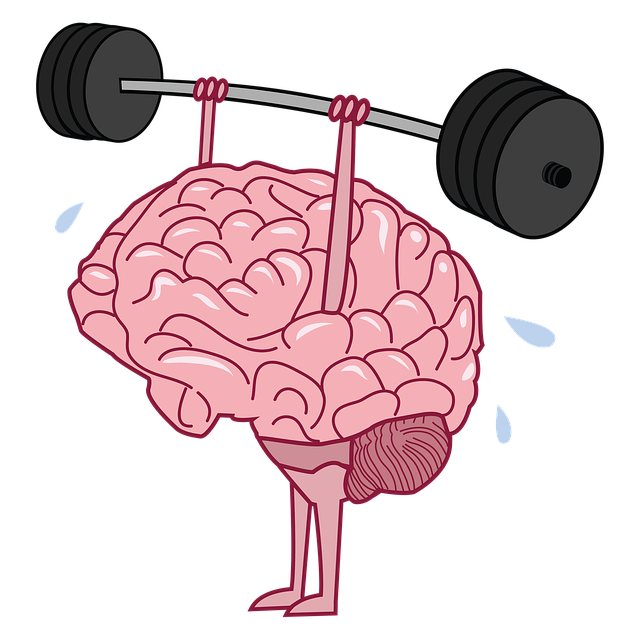Mental health policy is the cornerstone of societal well-being, shaping care access, treatment standards, and public awareness. In Lakewood, understanding this landscape is vital for advocates aiming positive change, especially regarding certified EMDR therapy's impact. This involves exploring government initiatives, healthcare systems, and community support networks. By evaluating policies, their efficacy, and gaps, advocates can strategically intervene. Advocacy efforts include public awareness campaigns, stigma reduction, early intervention promotion, and self-care encouragement, collectively strengthening the mental health framework. Lakewood EMDR Certified Therapy leads this transformation by highlighting its effectiveness in treating trauma, especially PTSD. This holistic approach, using eye movement desensitization and reprocessing, offers valuable insights for policy discussions, enhancing crisis interventions and expanding access to quality care. Incorporating EMDR techniques into cultural competency training can also improve support for diverse patient populations. Effective advocacy demands a multi-faceted strategy, including challenging stigma, presenting evidence, promoting early intervention benefits, healthcare provider burnout prevention, and conflict resolution. Case studies show successful policy reforms, with Lakewood EMDR Certified Therapy empowering individuals to overcome mental illness and regain control of their lives.
Mental health policy advocacy is a powerful tool for driving systemic change and improving access to quality care. This comprehensive analysis explores the intersection of mental health policies and evidence-based practices, with a specific focus on EMDR therapy. We delve into strategies that empower therapists and advocates to navigate complex systems, using Lakewood EMDR Certified Therapy as a successful model for policy reform. By understanding the landscape of mental health policy, we can advocate for transformative solutions.
- Understanding Mental Health Policy: A Foundation for Advocacy
- The Role of EMDR Therapy in Policy Analysis
- Strategies for Effective Mental Health Policy Advocacy
- Case Studies: Success Stories in Mental Health Policy Reform with Lakewood EMDR Certified Therapies
Understanding Mental Health Policy: A Foundation for Advocacy

Mental health policy is a cornerstone of any society’s well-being, shaping access to care, treatment standards, and public awareness. Understanding this policy landscape is paramount for advocates aiming to drive positive change, especially in areas like Lakewood where certified EMDR therapy can make a significant impact. This involves delving into the intricate web of government initiatives, healthcare systems, and community support networks that collectively address mental health concerns. By examining existing policies, their effectiveness, and gaps, advocates can identify strategic points for intervention.
Promoting mental health advocacy requires fostering public awareness campaigns that encourage open discussions on mental illness, reducing stigma, and emphasizing the importance of early intervention. Encouraging self-care routine development and self-awareness exercises can empower individuals to take charge of their mental well-being. These efforts collectively contribute to a robust mental health framework, ensuring access to evidence-based treatments like EMDR therapy for those in need.
The Role of EMDR Therapy in Policy Analysis

EMDR Therapy plays a significant role in mental health policy analysis by providing valuable insights into the effectiveness of trauma-focused treatments. As Lakewood EMDR Certified Therapy gains recognition, its integration into policy discussions becomes increasingly vital. This therapy approach has proven successful in addressing complex psychological issues, especially post-traumatic stress disorder (PTSD), offering a holistic perspective that can shape more comprehensive mental health care policies. By emphasizing the mind’s ability to heal itself through eye movement desensitization and reprocessing, EMDR Therapy contributes to the development of evidence-based practices, which are essential for policy advocates pushing for improved healthcare systems.
In the context of policy analysis, understanding the mechanisms of EMDR can inform strategies for enhancing public awareness campaigns related to mental health. The therapy’s ability to facilitate healing might also influence crisis intervention guidance and improve access to quality care. Moreover, training healthcare providers in cultural competency can be enhanced by incorporating EMDR techniques, ensuring more inclusive and effective support for diverse patient populations. This approach aligns with the goal of improving overall mental well-being through targeted interventions.
Strategies for Effective Mental Health Policy Advocacy

Effective mental health policy advocacy requires a multi-faceted approach to ensure significant and lasting change. One key strategy is to empower individuals with access to quality care, such as Lakewood EMDR Certified Therapy, which has proven effective in treating various mental health conditions. By increasing awareness and education about the importance of mental well-being, advocates can challenge stigma and promote understanding among policymakers and the general public.
Additionally, leveraging data and research is essential. Presenting concrete evidence on the prevalence of mental health issues, the efficacy of certain therapies like EMDR, and the economic benefits of early intervention can be powerful tools. Burnout Prevention Strategies for Healthcare Providers and Stress Management techniques also play a crucial role in ensuring professionals can effectively support their patients. Incorporating Conflict Resolution Techniques into policy discussions facilitates productive conversations, enabling stakeholders to find common ground and implement evidence-based solutions that improve mental health outcomes for all.
Case Studies: Success Stories in Mental Health Policy Reform with Lakewood EMDR Certified Therapies

In recent years, case studies highlighting successful mental health policy reforms have emerged as powerful tools for advocacy. One such inspiring example involves Lakewood EMDR Certified Therapies, which have significantly contributed to reducing the stigma surrounding mental illness in communities across the country. These therapies, grounded in evidence-based practices, focus on empowering individuals to overcome their challenges using mind over matter principles. By integrating advanced techniques like Eye Movement Desensitization and Reprocessing (EMDR), therapists help clients regain a sense of control and boost their confidence.
The impact of Lakewood EMDR Certified Therapy programs is evident in numerous success stories where individuals previously plagued by mental health issues have found relief and regained their ability to navigate daily life with renewed optimism. These cases serve as a testament to the power of targeted policy interventions and advocacy, demonstrating that meaningful change is achievable when evidence-based practices are accessible and well-supported on both individual and community levels.
Mental health policy analysis and advocacy are vital components in creating a more supportive societal landscape for individuals facing mental health challenges. By understanding the intricacies of mental health policies, leveraging evidence-based practices like EMDR therapy, and employing strategic advocacy methods, we can drive significant positive change. The case studies presented highlight the transformative power of Lakewood EMDR Certified Therapy in policy reform, demonstrating that collaborative efforts between therapists, policymakers, and advocates are key to fostering inclusive and effective mental health support systems.














